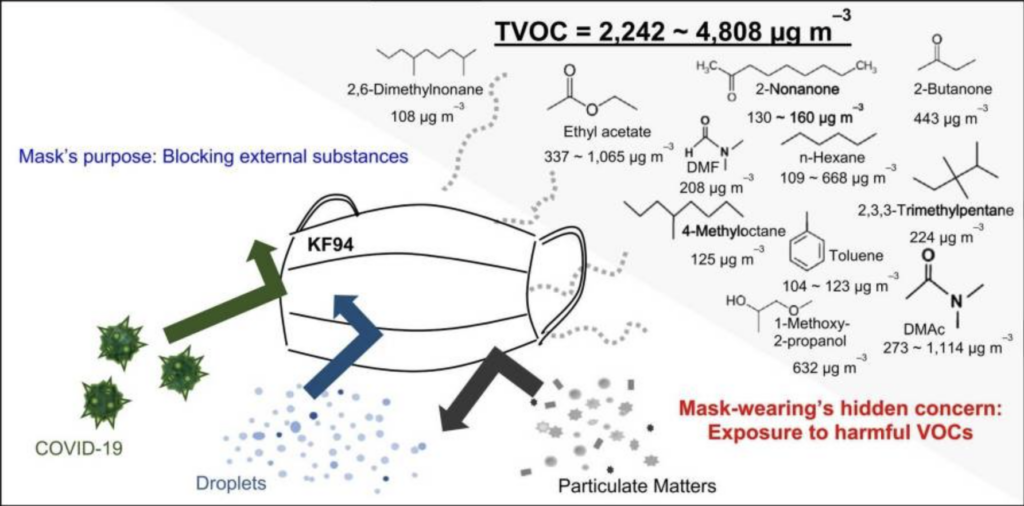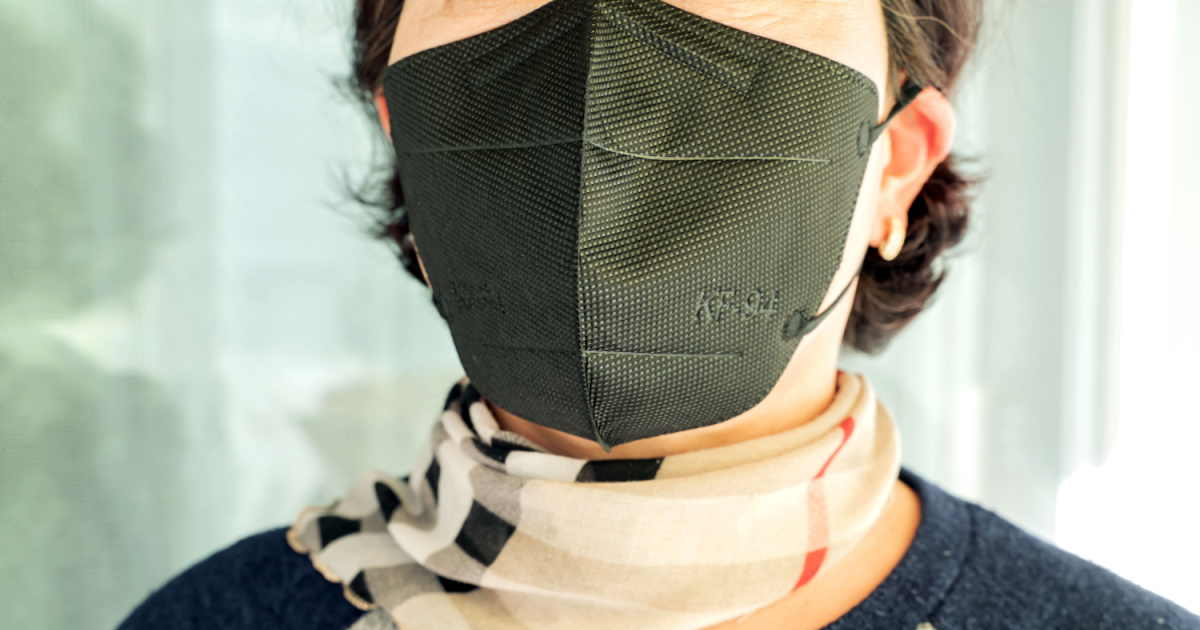In the midst of the COVID-19 pandemic, wearing masks became a crucial component for reducing the spread of the virus. The KF94 is touted for its high level of protection against airborne particles, and many healthcare professionals and members of the public were advised to use them. Compared to the N95 mask, KN94s offer similar, but slightly less protection from airborne particles. However, a recent study has raised concerns about the safety of KF94 masks.
TVOCs and the Safety of Wearing KF94Face Masks
The pandemic that gripped the world for nearly the first three years of the 2020s made a mark that none of us will soon forget. One of those marks is the culture around mask-wearing. For most of that time, masks became the norm and were mandatory. N95 masks were commonly recommended, but FFP2 (Europe), Chinese (KN95), and Korean masks (KF94) were also recommended. However, a new study from Jeonbuk National University in South Korea has found that these masks could potentially pose a risk to your health. (1) The study looked at 14 disposable and cloth masks that were purchased online and tested for TVOCs. The disposable masks were KFAD and KF94 models. These were made from thermoplastics polypropylene and polyurethane nylon.
This study found that wearing KF94 masks exposes you to high levels of TVOCs, also known as total volatile organic compounds. These chemicals can be found in many household and industrial products, such as cleaning supplies, paints, and adhesives. They are released into the air as gasses from these products and can have harmful effects on human health. (2) It is important to note that the study did not look at N95 or KN95 masks, so more research is needed on these kinds of masks.

How Do TVOCs Affect Our Health?
TVOCs can cause a variety of health problems, including respiratory irritation, headaches, dizziness, and nausea. Long-term exposure to high levels of TVOCs has been linked to cancer and other serious health conditions. Individuals with pre-existing respiratory conditions such as asthma may also be particularly sensitive to TVOCs.
Does This Mean We Shouldn’t Use Masks?
According to the researchers, masks still offer protection. However, if you don’t need to, then limit usage to only when needed (i.e., you are sick or going to be around immune-compromised people, or social distancing is limited). One step to reduce exposure when you do have to wear a mask is to let the mask air out for 30 minutes after unpacking it. This can significantly reduce the level of TVOCs in the mask. The study’s authors suggest that using ventilation or air-cleaning devices can further help to reduce TVOC levels.
Another way to protect yourself? Use a multi-layer reusable cloth mask. While they aren’t necessarily completely chemical-free, the ones that the researchers tested found negligible amounts. However, these also filter less from the air.
Study Limitations
It should be noted that researchers admitted that their sample size was small. The study also did not measure the effects of individuals wearing the masks. This led Dr. Stuart Fischer, an internal medicine physician in New York, to caution against drawing strong conclusions from the study.
Dr. Fischer told DailyMail.com that there is increasing evidence showing the drawbacks of mask-wearing, and “there seems to be diminishing returns on the need for masks.”
You Should Still Wear A Mask When You Need To
It is important to note that this study does not mean that wearing masks in general is harmful or ineffective. However, this study does highlight the importance of being aware of potential risks associated with specific types of masks and taking appropriate steps to minimize them.
The study on KF94 masks and TVOCs raises important concerns about the safety of these masks. While further research is needed to fully understand the extent of the risk, individuals who use these masks should take steps to reduce their exposure to TVOCs, such as letting the mask air out for 30 minutes. It is important to maintain a balanced view and remember that the benefits of wearing masks to prevent the spread of COVID-19 outweigh the risks associated with exposure to TVOCs.
Keep Reading: Disease X is coming, and with it the next global pandemic, scientists warn
Sources
- “Measuring the quantity of harmful volatile organic compounds inhaled through masks.” NCBI. Hajoo Ryu and Yong-Hyun Kim. May 2023.
- “Mask study published by NIH suggests N95 Covid masks may expose wearers to dangerous level of toxic compounds linked to seizures and cancer.” Daily Mail. Emily Joshu. August 27, 2023.
- “Covid masks may expose users to harmful chemicals” Earth.com. August 28, 2023.

